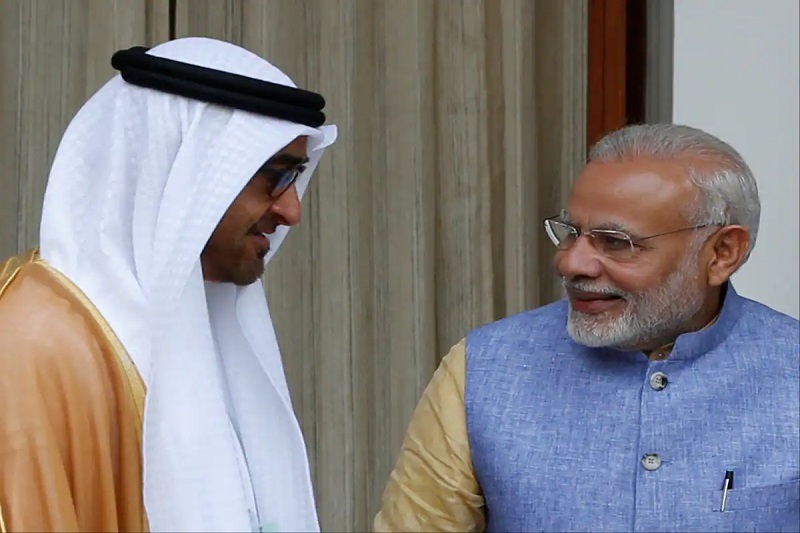
India’s Narendra Modi touches down in Abu Dhabi after two-day France tour
Indian Prime Minister Narendra Modi landed in Abu Dhabi on Saturday for the final leg of his two-nation visit. He is scheduled to hold wide-ranging discussions with UAE President Sheikh Mohamed bin Zayed Al Nahyan, focusing on bolstering bilateral relations in various key sectors.
Videos released on social media showed Modi touching down in the emirate, received by Sheikh Mohamed. Energy, defence and food security could be at the forefront of the scheduled talks.
UAE’s COP28 Presidency And India’s G20 Presidency
Commenting on the day-long visit, India’s Ministry of External Affairs said: “The India – UAE Comprehensive Strategic Partnership has been steadily strengthening and the Prime Minister’s visit will be an opportunity to identify ways to take this forward in various domains.”
Keep Reading
The trip could also provide an opportunity to hold meticulous discussions on cooperation on international issues, especially against the backdrop of the UAE’s COP28 Presidency and India’s G20 Presidency, with the Emirates a special invitee guest country to the summit in September.
2023 marks the 25th anniversary of the India – France Strategic Partnership. During the trip, Modi held intense discussions with French President Emmanuel Macron and was conferred with the Grand Cross of the Legion of Honour, the country’s highest civilian and military honour.
Businesses Benefiting From UAE – India CEPA Partnership
This will be the Indian Prime Minister’s fifth UAE trip since getting elected in 2014. Bilateral non-oil trade between both has been substantially increasing since the signing of the Comprehensive Economic Partnership Agreement in February last year, which took effect the following May.
The trade value has reached $50.5 billion, a 5.8% annual increase, in the first 12 months since the agreement.
The CEPA partnership includes a number of benefits. Businesses can now take advantage of lower or eliminated tariff rules, clear and transparent regulations, simpler customs procedures, and rule-based competition.




